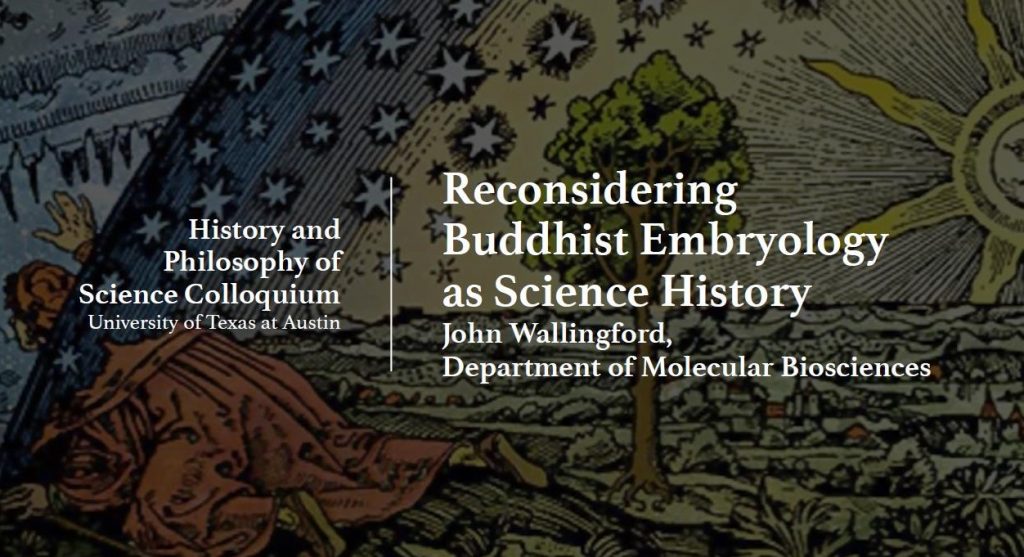
John Wallingford of the UT Department of Molecular Biosciences speaks on “Reconsidering Buddhist Embryology as Science History.”
It has not gone unnoticed in recent times that the history of science is heavily Eurocentric. A striking example can be found in the history of
developmental biology, the science of embryonic development. Textbooks and popular science writing frequently trace an intellectual thread from Aristotle through a small handful of 19th century German pioneers to 20th century genetics and 21st century genomics. Few historians and fewer still biologists are aware, however, of the depth and breadth of early embryological thinking outside of Europe. Here, I provide a series of vignettes highlighting the rich history of embryological thinking in early Asia. The impact of this body of thought on the “development” of modern developmental biology is unclear, but I contend that because culture shapes our thinking, these early Asian studies have significant implications for the modern practice. My goal is to provide an entertaining, even provocative, synopsis of an important but understudied topic, with the hope that this work will spur others to more thorough investigations.
____________________
John Wallingford holds the William and Gwyn Shive Endowed Professorship in UT’s Department of Molecular Biosciences. His work combines in vivo imaging with systems biology to explore the cell biological basis of embryonic development. He also has a strong interest in the history of embryology and associated sciences.
The views and opinions expressed in this article or video are those of the individual author(s) or presenter(s) and do not necessarily reflect the policy or views of the editors at Not Even Past, the UT Department of History, the University of Texas at Austin, or the UT System Board of Regents. Not Even Past is an online public history magazine rather than a peer-reviewed academic journal. While we make efforts to ensure that factual information in articles was obtained from reliable sources, Not Even Past is not responsible for any errors or omissions.



